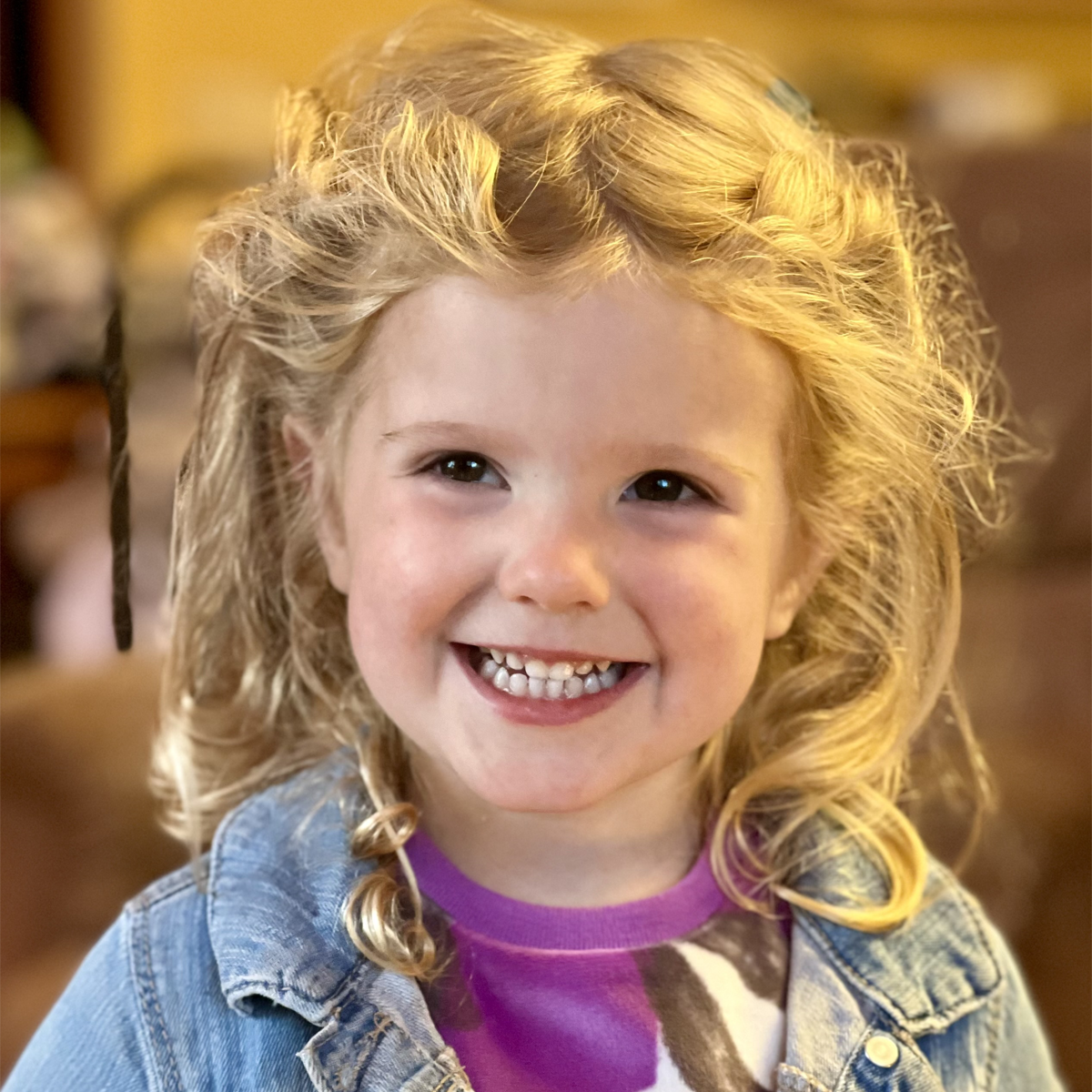A Crack in Your Phone

My life and calling often take me away from home. I bring my kids whenever I can, but sometimes it just isn’t practical. This past week was one of those times for Beck and me. After a full stretch out of state—meaningful and productive on many fronts—we finally pulled into our driveway Monday evening and saw the best sight in our whole life: the front door bursting open and a volley of kids squealing and sprinting across the yard toward us.
Hugs, kisses, repeat. More hugs. A twirl in a circle. Luggage still in hand, we made our way into the house. That’s our world: Aviva coming home from music practice, Connie fresh off her fifteenth birthday, Sean proudly recalling the ten punctuation rules I’d drilled into him before leaving. Tina and Aaron catching us up on all the scraped knees and ailments endured while we were gone. And little Ella, three years old, perched on the kitchen island while the rest of us gathered around a platter of cheeses and crackers a friend had kindly dropped off, knowing we were returning.
As I settled into my chair after the twelve-hour drive, Ella came pattering over to me in her pajamas and climbed up in my lap. “Oh,” I said, squeezing her, “I sure missed you!”
She turned her pudgy little face toward me, brown eyes glinting in the lamplight, blonde curls falling in soft ringlets. I wanted to hear her say it back.
“Daddy missed you. Did you miss me?”
She crinkled her button nose and said, “Yes, I missed you, but . . . .”
“But what?”
“But we did talk on FaceTime.”
“That’s right,” I nodded, glad for it.
“I like when you call me on FaceTime,” she added. Then, tilting her head, she went on:
“But I wish there was a little crack in your phone . . . .” She pinched her thumb and forefinger together, showing about a quarter inch. “. . . a crack that big, so you could crawl through the phone and be here. And I could crawl through the phone and be with you.”
And all at once, my hopes and wishes of what she might say were far surpassed by the marvel of how her little brain works—how the truth of her love and connection with us exceeds and breaks all frames and expectations.
I’m grateful that the technology, as helpful as it is, is not enough for her. She wishes for presence, connection—to be where she is now, perched in the fortress of my arms, in the nearness of my love.
I squeezed her tighter and didn’t say a word for a moment. “I wish that, too,” I said at last.
More Than Screens
But as a writer and communicator, I can’t stop thinking about what she said—isn’t that what everyone in the whole world should be thinking and wishing? That there were some cracks in our screens that would allow us to escape the one-dimensional, representational, flattened versions of ourselves and those we admire—and burst into a more present, immediate, tangible experience of the love we crave when we reach for the screen in the first place?
And that’s part of our responsibility as parents: to keep the lived, breathed, touched, smelt, and felt drama of life more precious than the dazzling simulacrum. And I suppose that’s one of the dangers in the technology itself—that instead of always wishing for the real when we see the representational, we begin to actually see and experience the real only through the eye and framing of the representation, until it becomes the standard.
The sunset becomes an “Instagrammable” moment. The family’s shared joy becomes “content” for another’s platform.
But how much harder, when such an inversion takes place in the human soul, does it become for us to enjoy, experience, and be moved by the world God created—the dazzling sunset behind the dinner table, the scent of budding trees amidst a forest, the presence of the Almighty that makes our spirits alight in the blending of a harmony, in the raising of voices in praise. We can become so tantalized, so distracted, so entertained that it becomes harder and harder for God and others to reach through the layers of cynicism, the guarded dismissals and rationalizations, and strike the chord of resonance in the deepest fibers of our soul.
There are entire industries devoted to transforming real lives into representational narratives—flattened, edited, and packaged to fit a frame that profits from outrage and feeds on spectacle. It is easier to project than to be present, to script a storyline than to listen for the truth. But our call is not to become content for someone else’s platform; our call is to live contentedly, faithfully, before God and one another, where tangible love proves more than all its facsimiles.
At its best, all the technology around us is a dangerous visual and auditory trick—conning the mind into accepting a human fabrication with the openness of heart that should arise only in response to the events and workings of a world truly crafted by God.
Clouds About the Fallen Sun
I think of the poem by William Butler Yeats that my dad would often quote to us—sometimes just under his breath—while gazing at the great orange sun as it cast its luminescent glory through the clouds of bruised blues deepening into purples, magentas, and violets, all trimmed with fiery gold:
“These are the clouds about the fallen sun,
The majesty that shuts his burning eye:
The weak lay hand on what the strong has done,
Till that be tumbled that was lifted high
And discord follow upon unison,
And all things at one common level lie.”
It took me years to understand those words—the poet saying that sometimes the people who “shine” and distract the eye the most are merely the gaseous plumes of “clouds,” stealing the glory that really belonged to another—to a sun that is slipping over our horizon, moving to plunge the world into darkness. And this dazzling wonder of those who plagiarize the sun’s brilliance is actually an omen of darkness to come.
And that’s the nature of this distraction machine that we use and entertain ourselves with—a mechanism that can only represent something better, plagiarize something glorious, until the hierarchy of truth and greatness—the variation and levels of brilliance and glory—seem to be brought down to one common level. But the poet warns that to move from harmony—the blended glory of differentness—toward unison leads inexorably to the next step: discord. Because we’re moving into a world not orchestrated by the Great Designer, but of our own creation, and discord is always the product of man taking the pen and acting as the composer instead of His instrument, failing to fulfill his mission to magnify, reveal, express, and love the Creator.
Longing for More
Heaven will have no screens, no media, no fabricated narratives with the power to reinvent reality according to the drama that places us in the center and seems to make the world revolve around our gaudy “clouds” for fifteen seconds of fame.
So I find myself longing for people who still wish for a crack in the screen—for that little aperture of hope that lets them step out of the shiny and perfect into the dirt and danger of real life. People who thirst for responsibility more than pleasure, for reality more than entertainment, for the nearness of the lived moment more than the polish of the fabricated one.
Maybe my daughter has given me words for the deepest prayer of all:
That one day, the veil will crack.
That the screen will shatter.
That we will crawl through—
and know that we are finally Home.





